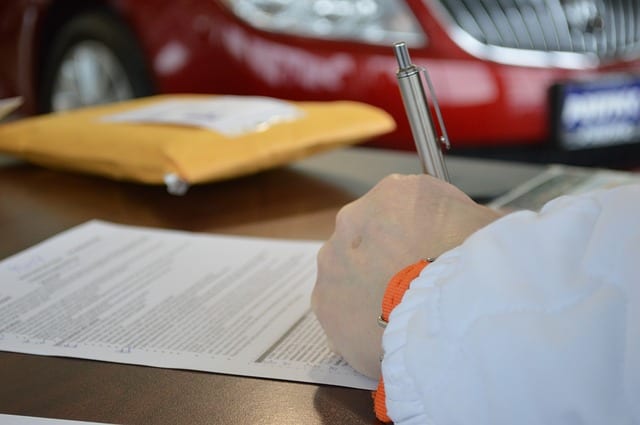Table of Contents
ToggleAre you Blogging Legally?
Are you blogging within the law? Click To Tweet
A blog is a great outlet to express your creativity, thoughts, and passions with the world. The possibilities on what you can write about are endless, but you should keep your creativity within the bounds of the law in order to stay out of trouble. In this post, we explore some of the legal issues you need to keep in mind to avoid things like cease-and-desist letters or legal action. Please keep in mind, however, that we are not lawyers. For specific legal advice on copyrights, privacy, disclosures, etc. we encourage you to seek legal counsel.

Images
Images are a great way to enhance your blog and to create an emotional connection with your readers and set the tone for your article. But how did you come to have that image or those images? Did you take the photo yourself, or did you do an internet search and copy-and-pasted the image into your article? If you answered yes to the second part, you will need to rethink the way you obtain images.
To legally use images, you need to either create the image yourself or you need to obtain the permission of the creator. If the image is not yours, you should obtain written permission from the creator, purchase a license to use the image, or choose to use a royalty-free licensed image.
If you are interested in obtaining free royalty-free images, a popular site is Creative Commons. This site is dedicated to allowing creators to legally share their work with the world. The site provides “free, easy-to-use copyright licenses to make a simple and standardized way to give the public permission to share and use” the creator's work. The site offers various licenses from free range (as long as the original creator is credited) all the way to download only for personal use (and credit the original creator). For a detailed description of the licenses offered, click here. Here are some other sites that offer royalty free images.
If you are using images from someone else on your blog, a good rule of thumb is to use royalty-free, commercial use images and always give credit to the original creator.
Copyrights
A copyright is a legal right granted to the creator of the work for the works use and distribution. This would include control over how the work is copied, reused, sold or published. This law was put in place to help prevent work from being stolen or misused.
A good rule of thumb is to consider any original work published on the internet is copyrighted. If you are interested in using some of that work, make sure that you have permission from the original creator.
For your own blog, you should include a copyright statement to remind the reader that your work is protected. You can include a statement on your website outlining how you would like your work used by the reader. Some bloggers want to keep their work fully under their control, while others are okay with their work being used freely as long as they are given credit as the original creator (any publicity is good publicity). If you want people to ask permission before using your work, you should outline how the reader can go about getting your permission. If you clearly outline how your work is to be used and how to obtain your permission to reuse the work, the less likely it will be to be for people to incorrectly use your work.
Disclosure
In your career as a blogger, you may find yourself reviewing a product, service, or location. Sometimes you may approach the business and offer to do a review and sometimes the business will approach you. In either case, if you receive any sort of compensation (be it a free product, commissions on products sold through your blog, or sponsorship) you should disclose this fact to your readers. This is important not only on a legal front but also on a reader loyalty front.
If you are open and honest with your readers that you have received some sort of compensation, but that these views are still your own, your reader will respect your openness and will choose whether they will hold with your opinion. If you do not disclose your compensation to your reader and they find out, you can lose all credibility and will lose your readers. Not a place to be in if you are a blogger dependent on having an audience.
When disclosing, it is important to make your statement as close to the claim as possible. Don’t be shady about your affiliation and be upfront with your readers. If you are promoting a product for purchase, you should also make your disclosures prior to a checkout screen so the reader is fully informed prior to making their decision to purchase.
Privacy
Privacy is a hot topic these days and people take their online privacy very seriously. If you collect any sort of private information about your readers, you should include a privacy policy statement on your blog to let your readers know what information you are collecting and how that information will be used.
If you have collected information about your readers, DO NOT sell that information to a 3rd party unless you have permission from every person from whom you have collected data.
Some bloggers have a contact form that they ask readers to fill out in order to build their email lists. If you collect email addresses this way, anti-spam legislation is in place to prevent you from mass mailing them without their consent. To legally send your readers mass mail, you will need the reader to opt-in to receive your messages. You must also include a way for them to opt-out of receiving future emails once they have started.
Disclaimers
A final item to consider when blogging is the use of disclaimers. If you are offering opinions on a topic and you are not a professional in a field, you should notify your reader that your opinions should be taken “as is” and is not a substitute for professional advice. While a disclaimer might not remove all responsibility from you if a reader follows your advice, but it will help clarify the situation and remind readers to seek outside counsel prior to making a big decision.
Are you blogging legally?
Ensure you are blogging within the law by following these simple tips - it's better to be proactive than have to deal with lawsuits and online threats!
----------
In plain terms, WordPress (WP) is simply the top free platform upon which one can create
fantastic fully-featured websites or blogs of any size (best among both free or paid solutions).
Learn more about WordPress here.
***Gain more insight about how to install WordPress & your options.***
If you would like to consider working with us on our Premium or Standard Plans on a ongoing monthly basis, then we can do the job FREE as a trial (with no credit card required and assumes you have a interest potentially becoming a Standard or Premium Plan member . . . otherwise, please use the single one-off job option below).
See here: https://www.wpwebsitehelp.com/#plansandpricing
OR
2. If you only need us to do this one job only, then checkout here for this one-off single job.
See here: https://www.wpwebsitehelp.com/single-one-job/
Our plans can cover ongoing maintenance & annoying regular task items, of which, you should not spend your valuable time! This gives you peace of mind so you can focus your mind on your endeavor. We have you covered whether it is WordPress help or WordPress support for a business, personal, student, education, non-profit, or ministry endeavor.
Here are some examples along with HOW it works at WP Website Help.
Here are a few FAQ’s & our about us.
Would You Like to Get Started with Us?
We would be honored to help you with your WordPress website or blog.
Jolene is a strong operations, compliance, and paralegal manager. She also loves to research and write about business as well as personal topics that help others.
Jolene @ The WP Website Help Team

